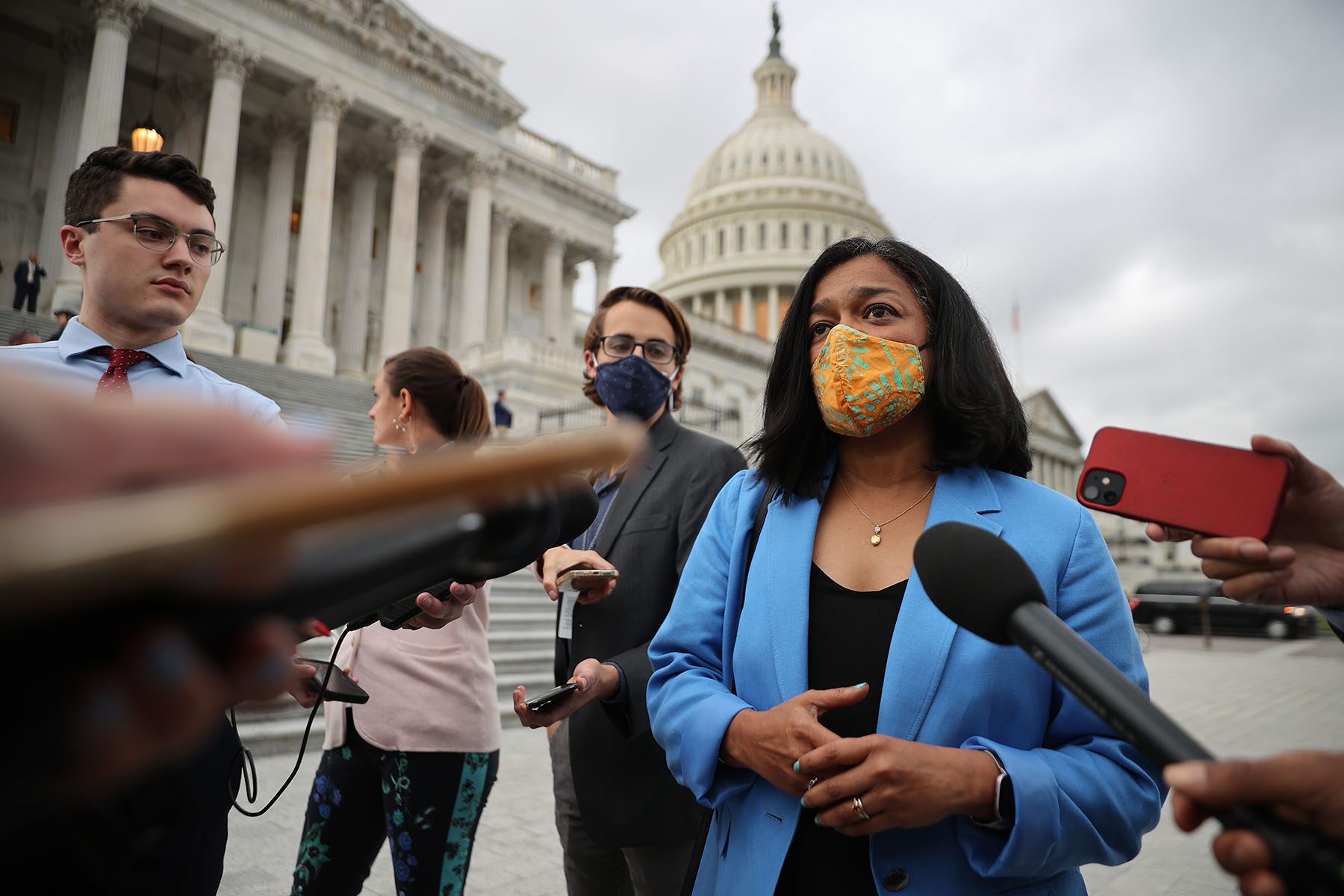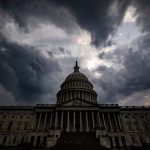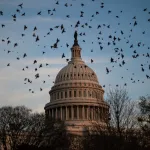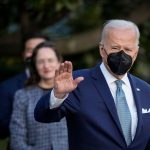The Congressional Progressive Caucus released a slate of policy priorities on Thursday they believe President Joe Biden can implement by taking executive action, including canceling federal student loan debt, lowering drug prices for insulin and inhalers, and creating a path for child care workers to unionize.
The proposals echo components of the languishing Build Back Better agenda, Biden’s sweeping $1.8 trillion domestic economic agenda that included climate mitigation proposals and policies intended to support working women such as universal pre-kindergarten, subsidized child care for most American families and an extension of the expanded child tax credit.
Members of the Congressional Progressive Caucus (CPC) began discussing what Biden could accomplish by executive action in December as plans for a Senate vote on Build Back Better fell apart — Democratic Sen. Joe Manchin of West Virginia said he would not vote for it, tanking its chances in the evenly divided chamber. CPC Chair Rep. Pramila Jayapal of Washington said that “progressives understand that our mandate in this governing moment is to deliver for working people and to leave no one behind.”
“To that end, we have been pursuing a strong legislative strategy, and we will continue to do that, and that includes numerous conversations with senators, with the White House, with our own leadership, about how to move any piece of our originally called Build Back Better agenda through,” Jayapal told reporters.
“At the same time … the Biden administration has taken a strategy of executive actions since President Biden came into office, and we are now releasing a slate of steps that the administration can take in that same mode of executive action that will have an immediate and meaningful impact for families,” she added.
The CPC is made up of 97 left-leaning House Democrats, along with Sen. Bernie Sanders of Vermont, an independent who caucuses with the Democrats in that chamber. There have already been discussions at the staff level between CPC offices and the White House, as well as with the Congressional Hispanic Caucus, and the Congressional Black Caucus, which are also expected to make recommendations on potential executive actions to the president.
The push by the caucuses is coming ahead of November’s midterm elections, when all 435 House seats and roughly a third of the Senate are on ballots. Biden’s approval rating has steadily declined over the past year, with an aggregate of available polling putting him at about 42 percent approval. A president’s party nearly always suffers losses in the midterm congressional elections, and Democrats, who hold a small House majority and currently control the Senate due to the vice president’s tie-breaking authority, are bracing for defeats. Some believe delivering on the stalled portions of Biden’s agenda could help stanch Democrats’ losses and allow them to hold onto control of one or both chambers.
“Every single thing we can deliver between now and November helps us, right? Every single thing that we can deliver between now and November helps us to continue to build the momentum, and also to bring in constituencies that are still waiting for more action on particular areas,” Jayapal said.
Executive orders are written directives that presidents provide to their administrative agencies that are published in the Federal Register. As of this week, Biden has signed 84 executive orders, as well as 64 presidential memoranda, which are similar in function but not published in the Federal Register. Presidents’ use of executive orders has gained attention as Congress has become deadlocked, but Donald Trump issued fewer than Barack Obama, who issued fewer than George W. Bush. Franklin Roosevelt, with 3,721 executive orders, holds the record. Executive orders can be challenged in federal courts if parties believe a president has exceeded their authority. Presidents can, and often do, undo the executive orders of their predecessors.
Jayapal said the recommendations the CPC has sent to the White House for action were developed to fall under the legal scope of a president’s authority. The CPC is urging Biden to cancel federal student loan debt under existing administrative authority established in the Higher Education Act of 1965; expand the countries for which immigrants are eligible for Temporary Protected Status; ensure at least 40 percent of benefits from federal clean energy investments are reinvested in economically disadvantaged communities; and fully implement the Medicaid Equal Access Rule.
Jayapal acknowledged that the CPC “struggled” with how to bolster funds for the caregiving economy via executive action and not legislation passed by Congress, which controls the federal government’s purse strings.
But “there are ways to grow strong child care unions that we think can also be a driver of stronger labor standards,” including pay, she said.
“The way we’re thinking about it is: if we can build those strong child care unions, you can push for stronger standards. It’s sort of a ground-up approach, but obviously for the federal government to invest money into this area, it’s going to be the best path,” Jayapal added.







